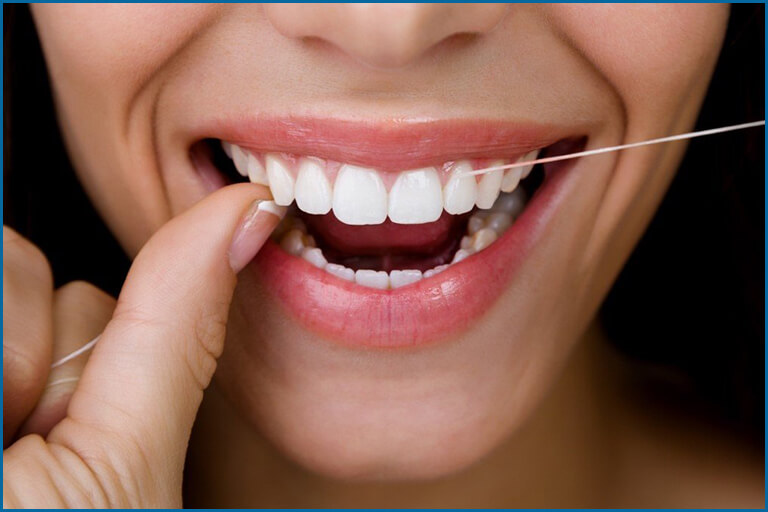
Menu
- Home
- About
- Our Team
- Services
- Postoperative Care
- Smile Gallery
- Medical Tourism
- Blog
- Offers
- Contact Us
- Home
- About
- Our Team
- Services
- Postoperative Care
- Smile Gallery
- Medical Tourism
- Blog
- Offers
- Contact Us

Good oral hygiene has a vital role to play in the maintenance of oral health. Simple measures like brushing of teeth and flossing can ward off bad breath, prevent dental decay and keep your gums strong and healthy.
Though you may be aware of these simple oral hygiene measures, you may be confused regarding the correct order in which they need to be carried out.
Whether we should brush before flossing or vice versa?
This blog post will help you understand the correct sequence of performing these measures.
Why is flossing important?
Brush your teeth at least twice a day. Brushing removes the plaque layer from the teeth surfaces and also removes the remaining food particles stuck to our teeth, and prevents the decay-causing bacteria multiplying inside the mouth.
Brushing fails to remove all the debris as the bristles of the toothbrush cannot penetrate the interdental areas (those that fall in between the teeth). Hence, these areas remain unclean and can attract bacterial growth.
Flossing is the best way of eliminating the food particles in the interdental areas and keeping the mouth as clean as possible.
When should flossing be done?
It’s recommended to floss your teeth BEFORE brushing your teeth.
There is a very logical reason behind that.
If you floss first, you ensure that all the food debris stuck in the interdental areas have been flushed out and brushing your teeth. Soon after removes the loosened debris and the plaque layer from the rest of the mouth, thereby, cleaning the mouth effectively.
If the order is reversed, the dirt removed by flossing stays inside your mouth until the next time you brush your teeth. It’s almost equivalent to not flossing your teeth.
Moreover, an unclean mouth can put you under the risk of developing gum diseases like gingivitis (inflamed gums).
Another important reason for flossing before brushing is that it is easier for fluorides from the toothpaste to bind to clean teeth surfaces and provide strength and protection from dental decay.
Final Note
It must be understood that most of the dental problems like, dental decay or gum infections can be prevented easily. All it needs is a proper oral care routine that is followed diligently.
Brushing and flossing should be a part of your daily oral hygiene routine. And flossing should be performed before brushing your teeth.